Youth Leadership in Food Systems
This panel highlights youth voices across different sectors of the food landscape, from agriculture to research. This energetic group delivers a powerful and hopeful message about the role of youth in creating community-led food systems.
Hackathon Report
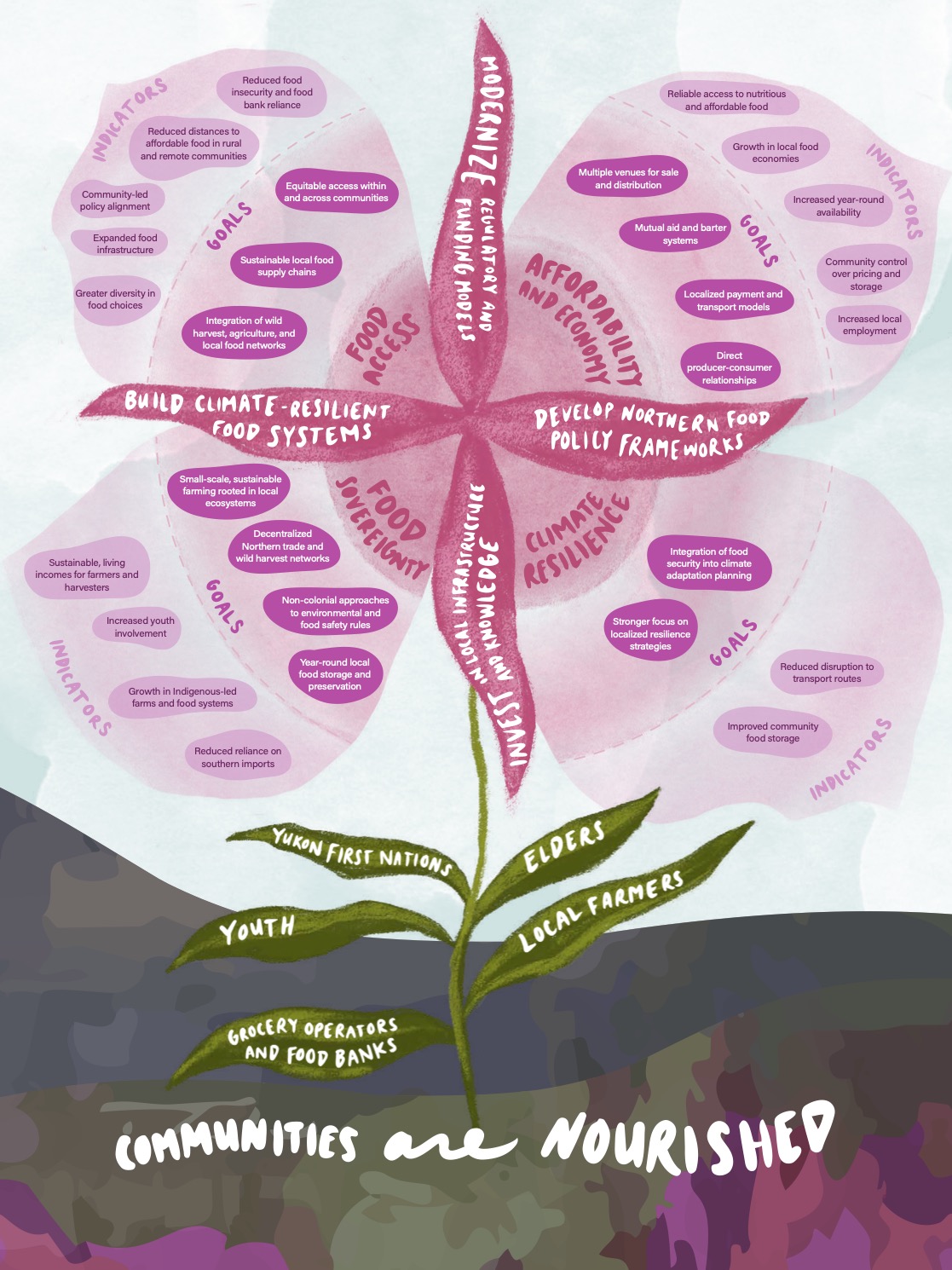
Following the youth discussion, panelists led a participatory hackathon with conference attendees exploring questions about food sovereignty, food access, affordability, and climate resilience.
"Communities are Nourished" is a snapshot of the goals and indicators that emerged from those conversations.

.png)
Graphic by Alexandra Sawatzky
Alexandra Sawatzky, PhD (she/they) is Creative Lead at the Arrell Food Institute, where she provides creative leadership to research, education, and knowledge mobilization that supports equitable, resilient food system.
The Arrell Food Institute works across research, policy, education, and innovation to connect people and ideas and advance sustainable food systems in Canada and beyond.
Speakers and Panelists
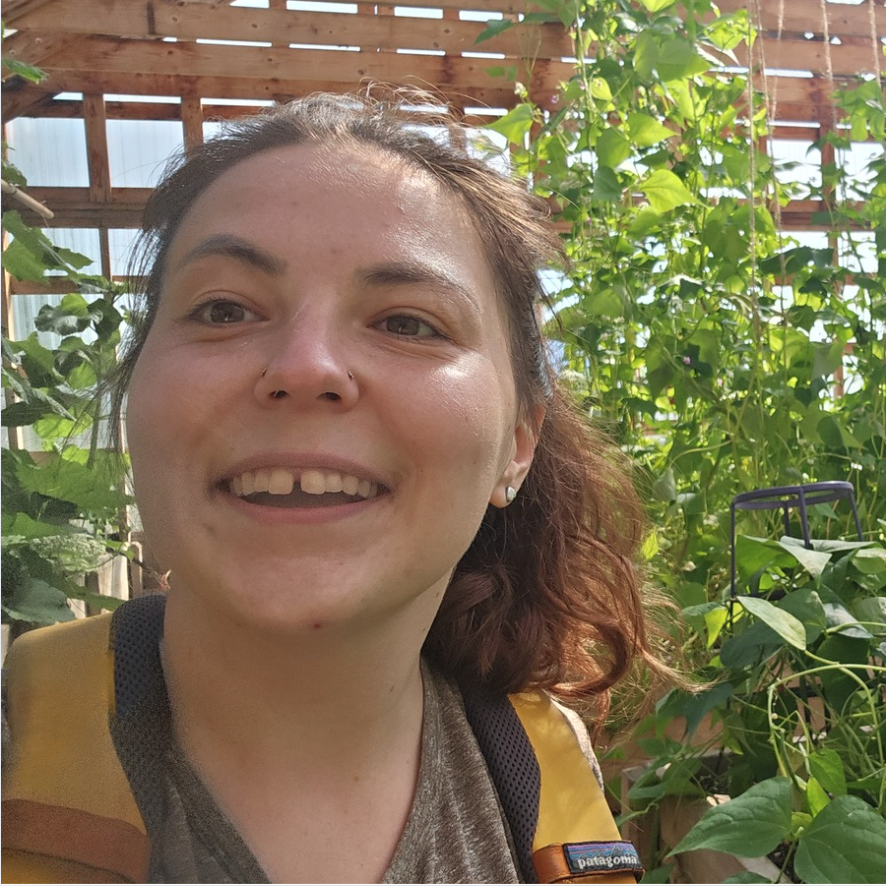
Meesha started the Beaver Creek Food Sovereignty Project in 2023, where she was mentored by local food sovereignty experts, Elders, and the community. With an academic and personal interest in how climate change impacts northern health, her work with White River First Nation exploded into a dynamic position in supporting rural and remote communities in food sovereignty initiatives. As the rural coordinator at the Yukon Food Security Network, her passion for celebrating rural communities is a key theme of this conference. Her passion for youth leadership in community-based food initiatives is inspired by the energy young people bring to their local food systems. She is the founder of the Youth Coalition 4 Food Security North project, a pan-northern youth network of young leaders leading food sovereignty and security initiatives across northern Canada.
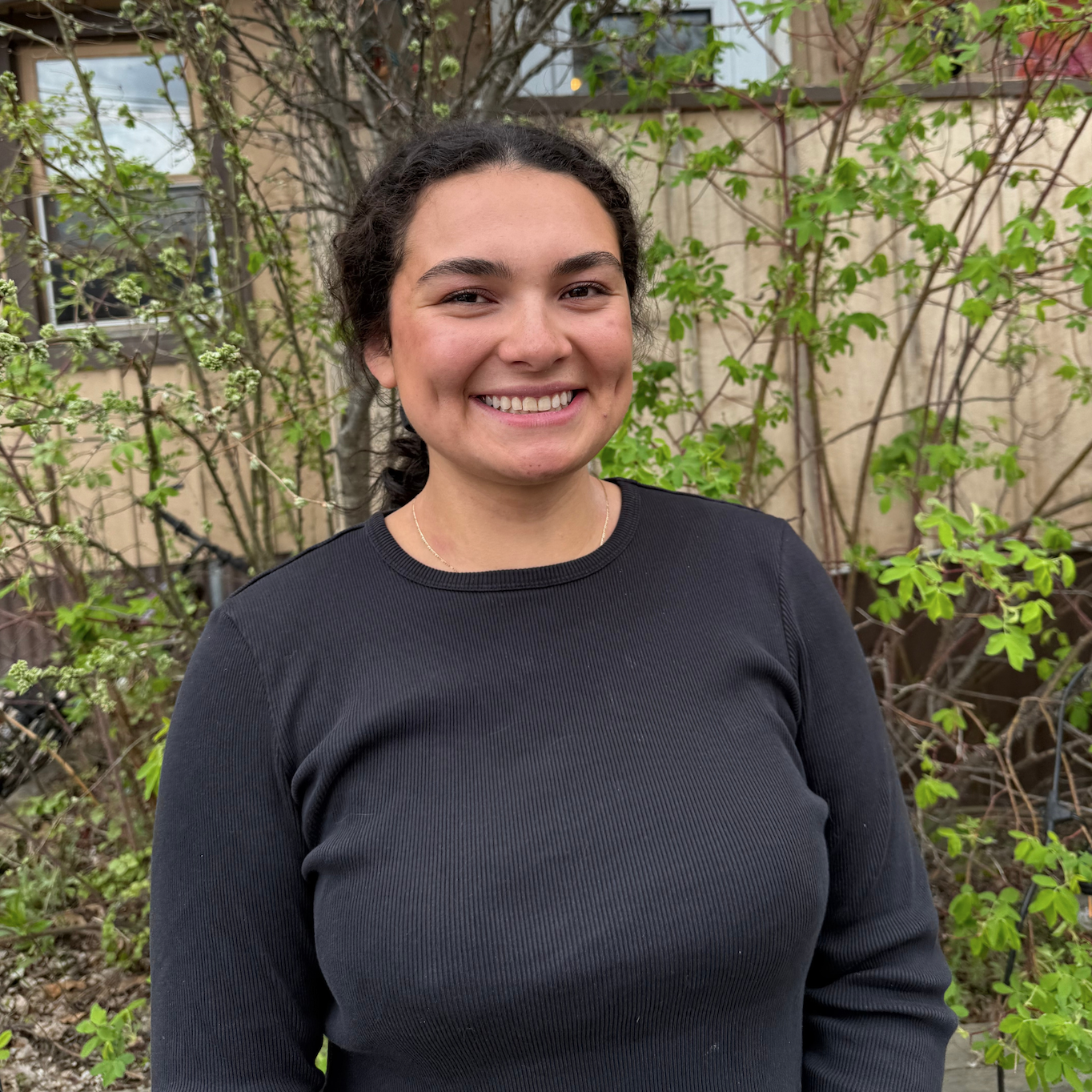
Patient-Oriented Research
Taylor is Cree and Metis from Treaty 8 territory, born and raised in Whitehorse, and now based in Dawson City. She is currently pursuing a Bachelor of Arts in Indigenous Governance at Yukon University, previously studying International Relations at the University of British of Colombia.Taylor works as a Junior Researcher with Yukon Strategy for Patient-Oriented Research (YSPOR), where she is heading a research project with the Trondek Hwechin Teaching and Learning Farm. This community-grounded project is looking into the connection between local food systems and agriculture to community health and wellness. Her work and advocacy are grounded in lived experience and a commitment to fostering sustainable, inclusive solutions that prioritize food security, community engagement, and equitable access to essential services across the north.
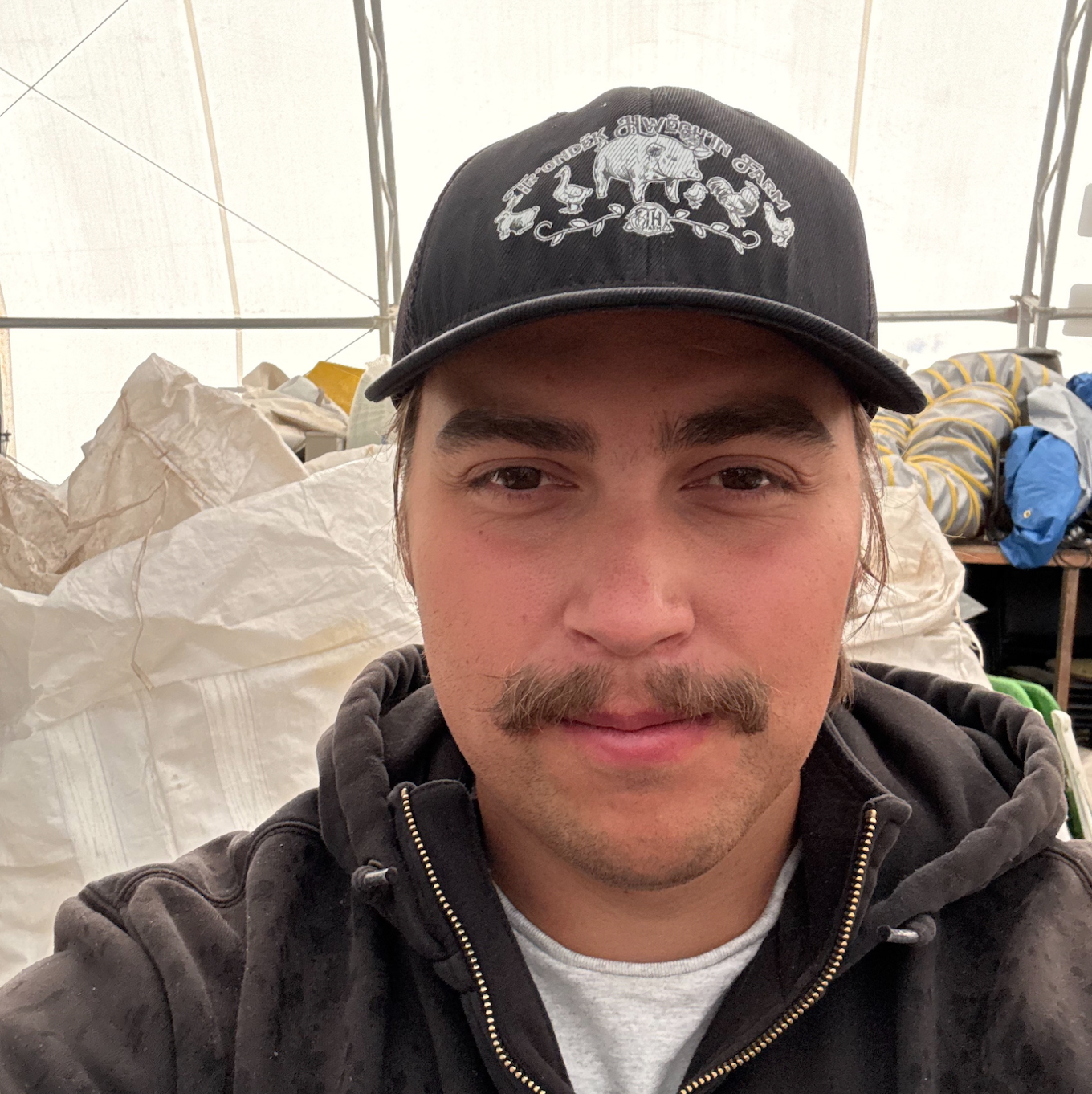
Johnathon Robinson is a Tr’ondek Hwech’in citizen and was born and raised in Dawson City, Yukon. Growing up, he was taught to respect the land and all its inhabitants; “my parents taught traditional methods of hunting and fishing that have stayed with me and guided me through life”. His passions for land preservation, climate and environmental advocacy, cultural preservation, and food security shine through his work with the Tr’ondek Hwech’in Teaching and Learning Farm. Through his year-round work on the farm, he not only provides food for the community but also fosters connections between Elders, youth, and the land.
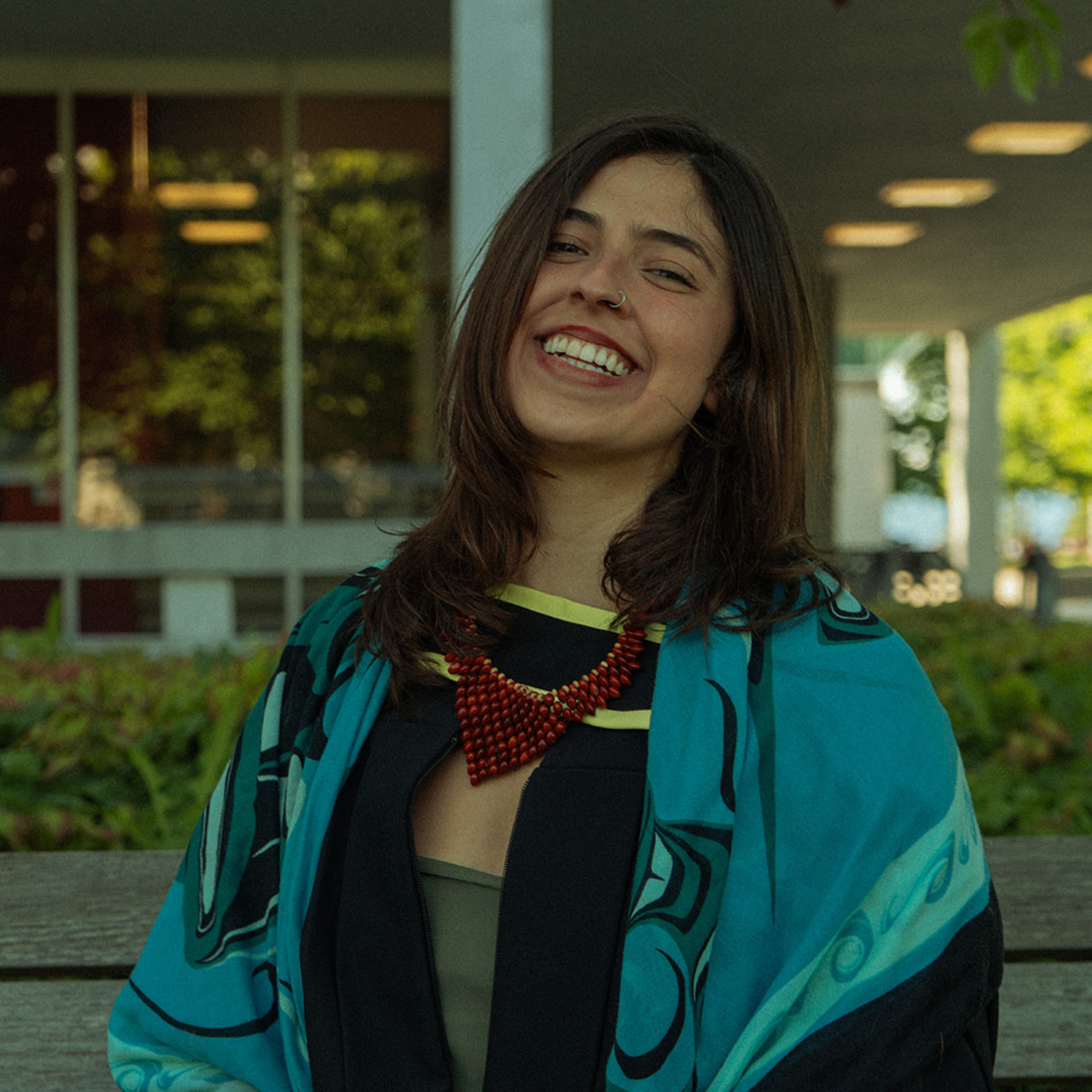
Food Sovereignty
Luiza Salek is of Syrian descent born in Rio de Janeiro. Her work is shaped by experiences with frontline youth across climate justice movements, and is grounded by a deep commitment to strengthening transnational solidarities across the Global South and North. With a focus on Indigenous health, research, and education, and a background in Land and Food Systems, her position as a Junior Researcher with the Working Group (WGIFS) tends to systemic and the emotional dimensions of climate change.
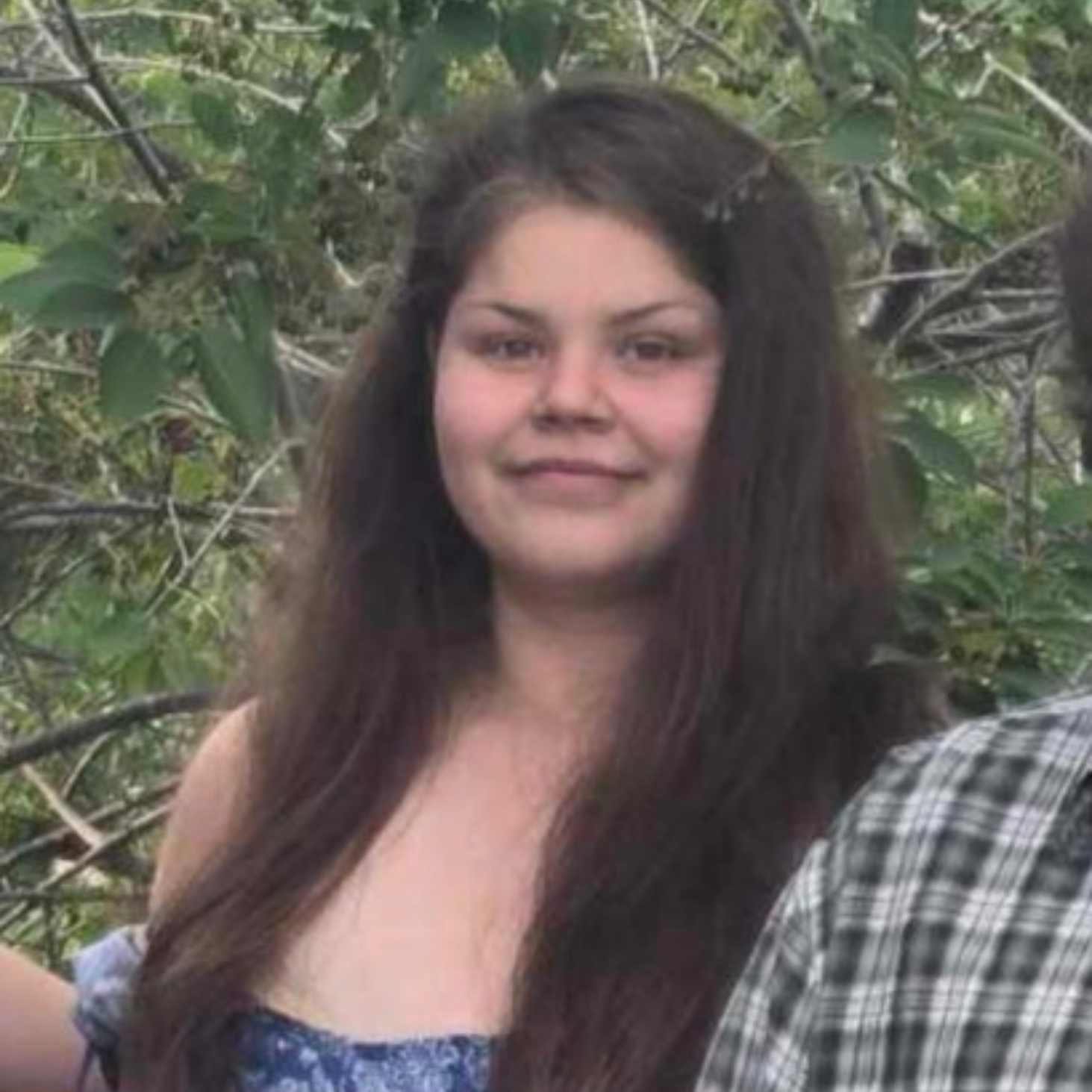
Emi is a Nacho Nyak Dun Citizen born and raised in the Yukon. Emi has been learning at the Nacho Nyak Dun garden in Mayo for the previous 9 years under various mentors. She is eager for any opportunity to experience the teachings of our elders, community, and land. Currently completing her education in Early Learning while raising a young family, Emi makes sure to set time aside to connect and work with nature.
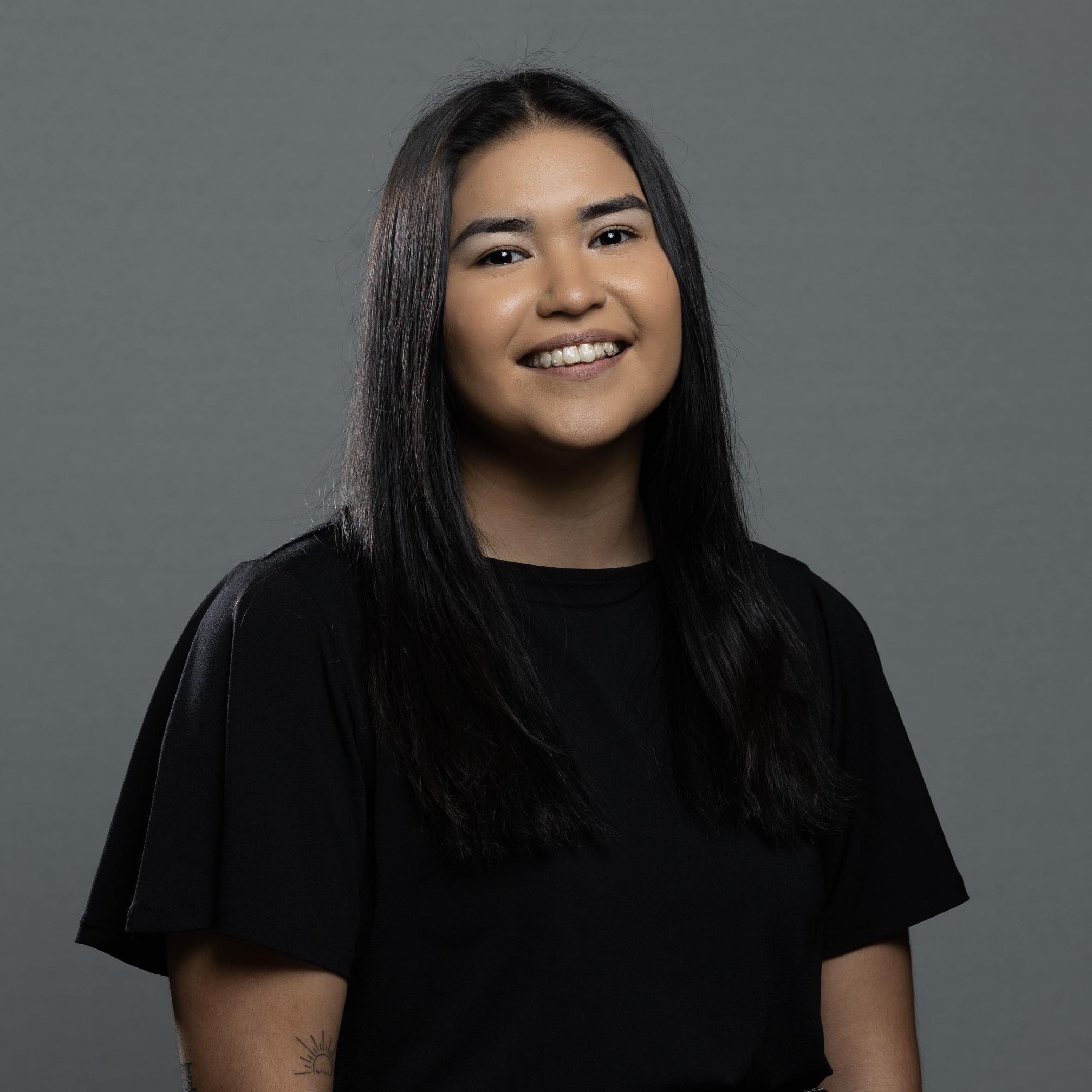
Davina McLeod is Inuvialuk and Gwich'in from Aklavik, Northwest Territories, and is based in the Yukon on the traditional territory of the Kwanlin Dün First Nation and the Ta’an Kwäch’än Council. She holds a Bachelor of Business Administration in Management from the Southern Alberta Institute of Technology. Davina works with the Council of Yukon First Nations as the Health Survey Coordinator for the First Nations Regional Health Survey. Davina’s upbringing was rooted in a traditional way of life, where she learned through time on the land to respect and care for the land and waters that continue to sustain her people. These values continue to guide her work, particularly in the areas of food sovereignty, community wellbeing, and self-determination.

